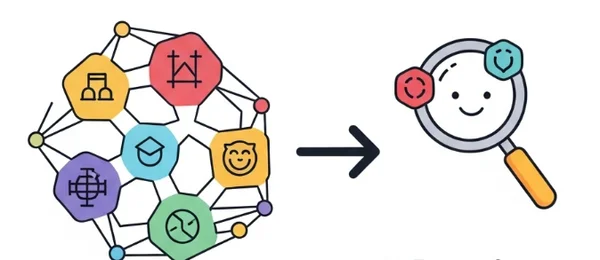Dyscalculia's Impact: Beyond Math to Daily Life Tasks
June 22, 2025 | By Aisha Bennett
More Than Just Math: How Dyscalculia Affects Telling Time, Time Management, Spatial Awareness, and Other Everyday Challenges
When people hear "dyscalculia," they often think it's solely about struggles with math class. But the reality is that the dyscalculia impact stretches far beyond math homework and exams. How does dyscalculia affect daily life? This learning difference can create significant everyday challenges in areas like telling time, managing schedules, navigating spaces, and even remembering numbers. Understanding the full scope is crucial for effective support and underscores the dyscalculia test relevance in painting a complete picture. If you're wondering about these broader effects, you might find more information and assessment tools at dyscalculiatest.com.
Understanding Dyscalculia: A Quick Overview
Before diving into its daily impact, let's briefly define dyscalculia.
Defining Dyscalculia as a Specific Learning Difference
Dyscalculia is a specific learning difference that affects an individual's innate ability to acquire arithmetical skills. It's often described as "math dyslexia," though it's distinct and relates to a fundamental difficulty with number sense and quantity.
Core Difficulties Associated with Numerical Cognition
Individuals with dyscalculia may struggle with understanding number concepts, recognizing numerical magnitudes, performing calculations, and recalling math facts, among other challenges. These core difficulties have a ripple effect on many aspects of dyscalculia daily life.
The Far-Reaching Dyscalculia Impact on Daily Life and Tasks

The dyscalculia impact is not confined to the classroom. It manifests in numerous practical, everyday situations.
Telling Time and Time Management Dyscalculia Challenges
This is a significant area of everyday problems with dyscalculia.
- Struggles with analog clocks and estimating duration: The telling time dyscalculia connection is strong, as reading analog clocks requires spatial reasoning and understanding fractions of time, both often challenging.
- Difficulties planning schedules and meeting deadlines: Time management dyscalculia can make it hard to estimate how long tasks will take, leading to issues with punctuality and organization.
Spatial Awareness Dyscalculia: Navigating Directions and Space
Spatial awareness dyscalculia can create difficulties with:
- Challenges with map reading and sense of direction: Understanding left/right, north/south, and visualizing routes can be problematic, leading to dyscalculia directions issues.
- Difficulties with visualizing objects in space: This can affect tasks requiring spatial organization, like parking a car or arranging items.
Memory and Dyscalculia: Remembering Sequences and Numbers
Dyscalculia memory challenges often involve numbers and sequences.
- Trouble recalling number sequences, facts, or formulas: This extends beyond math to remembering phone numbers, PINs, dates, or even steps in a sequence.
- Impact on remembering PINs, phone numbers, or dates: These everyday numerical memory tasks can be a constant source of frustration.
Financial Literacy: Managing Money and Budgeting
Dyscalculia money management difficulties are common.
- Difficulties with calculating change, tipping, and managing budgets: These tasks require quick mental math and an understanding of monetary values, which can be impaired.
Measurement and Estimation in Everyday Contexts
From cooking to DIY projects, dyscalculia measurement issues can arise.
- Challenges with cooking, DIY projects, or judging distances: Accurately measuring ingredients or distances often requires a good sense of quantity and estimation, which can be weak.
Interpreting Graphs, Charts, and Data
Understanding visually presented numerical information can be hard.
- Difficulties understanding data presented visually: Individuals with dyscalculia may struggle to interpret graphs, charts, and tables that rely on numerical or spatial relationships.
Living with Dyscalculia: Real-Life Examples and Experiences

Understanding living with dyscalculia means seeing how these challenges play out.
Difficulties in the Kitchen: Following Recipes and Measuring Ingredients
A recipe might call for ¾ cup of flour or baking for 25 minutes – both potentially tricky due to issues with fractions and time estimation.
Challenges in Sports: Keeping Score and Understanding Spatial Plays
Remembering scores, calculating point differences, or understanding spatial formations on a field can be difficult.
Navigating Public Transport and Travel Planning
Reading timetables, calculating journey times, and understanding platform numbers can all be everyday challenges dyscalculia presents.
Impact on Gaming and Hobbies Involving Numbers or Strategy
Many games involve scores, probability, or strategic use of resources, which can be less enjoyable or more frustrating for someone with dyscalculia.
Why a Comprehensive Understanding of Dyscalculia Matters
It's vital to see the dyscalculia impact in its entirety.
Moving Beyond the "Bad at Math" Label
Recognizing these widespread effects helps move beyond simplistic labels and fosters a deeper understanding dyscalculia as a multifaceted learning difference.
The Importance of Early Identification and Support
Early identification allows for tailored strategies and accommodations, not just for math, but for all affected areas of dyscalculia daily life.
Recognizing Strengths Alongside Challenges
Individuals with dyscalculia often have many strengths in other areas. A comprehensive understanding helps to build on these strengths while addressing weaknesses.
How a Dyscalculia Test Can Clarify the Bigger Picture

How can I know if my struggles are dyscalculia or just being "bad at math"? A specialized assessment is key.
Assessing a Range of Cognitive Skills, Not Just Math
A good dyscalculia test relevance lies in its ability to assess a spectrum of cognitive skills related to number processing, spatial reasoning, working memory, and more, which helps to identify the specific patterns associated with dyscalculia.
The Value of a Profile for Personalized Support Strategies
Understanding the specific cognitive profile through a cognitive assessment dyscalculia focused tool, like the one offered at dyscalculiatest.com, can lead to more effective and personalized support strategies for tackling these everyday problems with dyscalculia.
Recognizing the Full Spectrum of Dyscalculia's Impact
The dyscalculia impact is profound, extending well beyond math classrooms into the very fabric of dyscalculia daily life. From time management dyscalculia to challenges with spatial awareness dyscalculia and dyscalculia memory, the effects are varied and can significantly affect an individual's confidence and independence. Recognizing these everyday challenges dyscalculia presents is the first step towards empathy, effective support, and understanding the true dyscalculia test relevance in uncovering the full picture.
Have you experienced or observed how dyscalculia impacts daily tasks beyond math? Share your insights in the comments.
Frequently Asked Questions about Dyscalculia in Daily Life
How does dyscalculia affect daily life for adults specifically?
For adults, dyscalculia daily life challenges can include managing personal finances, difficulties with job tasks requiring estimation or data interpretation, navigating, and even social situations involving games or quick calculations. The cumulative effect can impact career choices and self-esteem.
Can dyscalculia affect memory or just numbers?
Dyscalculia memory issues often relate specifically to numerical information (like phone numbers, dates, math facts) and sequences. While it doesn't typically cause global memory problems, the working memory for numbers can be particularly affected.
Is difficulty with directions a sign of dyscalculia?
Yes, significant dyscalculia directions issues can be a sign, as it often ties into spatial awareness dyscalculia. This can include trouble reading maps, remembering routes, or distinguishing left from right.
How can I know if my struggles are dyscalculia or just being "bad at math"?
While many people find some aspects of math challenging, dyscalculia involves a persistent and significant deficit in fundamental number sense and related cognitive skills that impacts learning and dyscalculia daily life broadly. If you suspect dyscalculia, a comprehensive assessment is crucial. An online screening tool, like the Dyscalculia Test you can find on our website, can be a valuable starting point for understanding if further investigation is warranted.